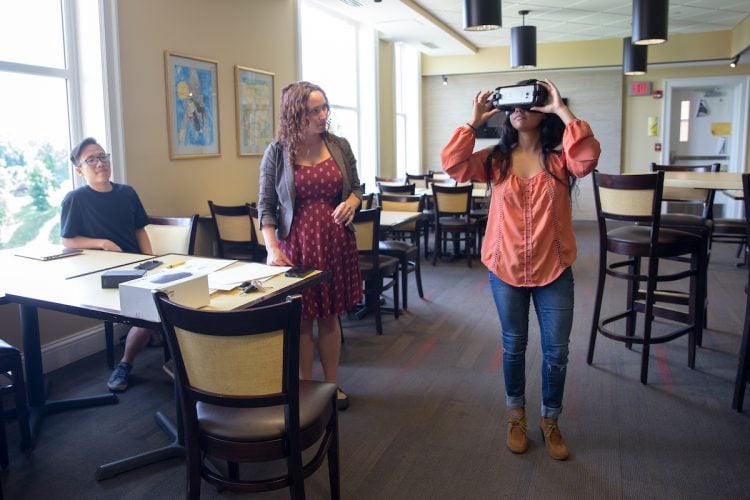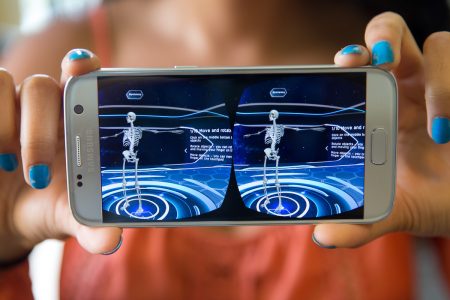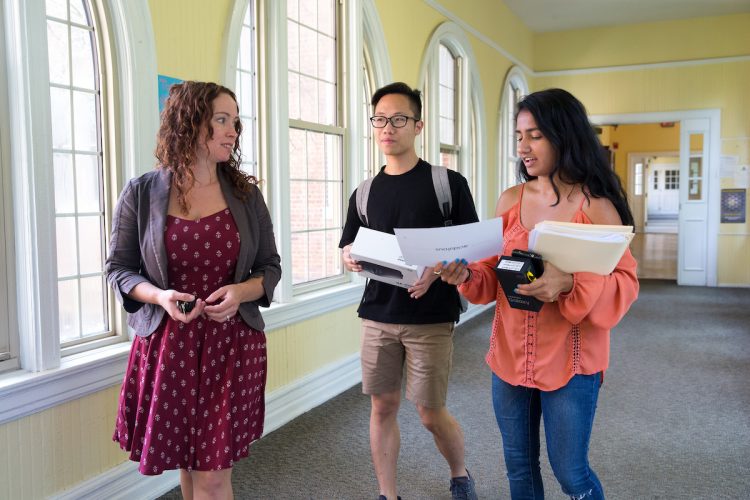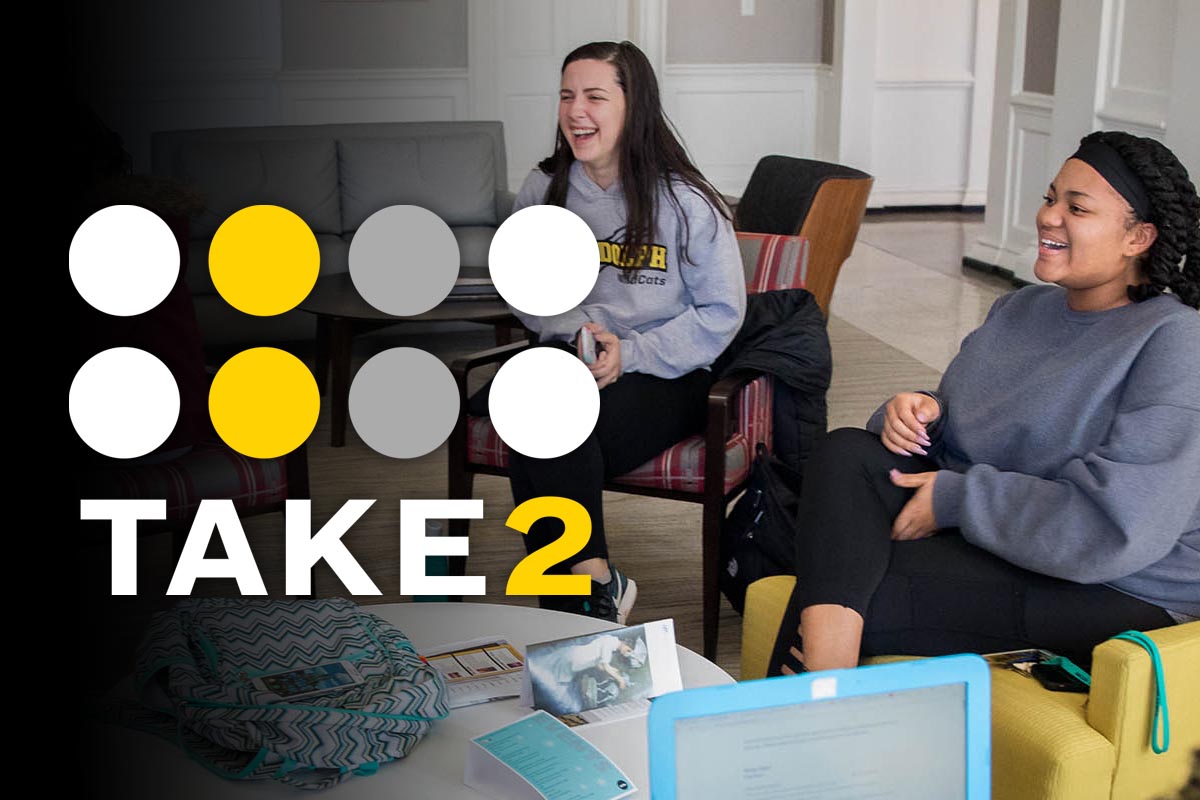Taking the virtual leap

Dung Nguyen ’18 (left) and psychology professor Blair Gross watch as Avisha Shah ’18 uses the Oculus virtual reality headset.
This spring, Randolph psychology professor Blair Gross took one of her classes to a virtual reality lab at the University of Virginia. Students took turns putting on the Oculus headset and walking a plank from the top of a tall building in a virtual world, but no one, including Gross, could bring themselves to find out what would happen if they fell. However, the exhilarating experience did give her ideas for some other ways the technology could be used.
This summer, Gross is partnering with Avisha Shah ’18 and Dung Nguyen ’18 on a Summer Research project to examine ways that virtual reality can be used in classrooms both at Randolph and other schools. They are also programming a virtual world that could be used in future psychological research.

Oculus users can study specific bones in the human body on a 3-D skeleton.
“This could be so beneficial to all the academic departments at Randolph,” Gross said. “I think the power of VR is that it’s so engaging and distinctive, and so much more immersive than studying for tests by just going over notes and other traditional methods.”
Shah, who is a biology major with minors in psychology and chemistry, is focusing on the educational aspect of the project. So far she has been comparing traditional and virtual reality learning techniques, and finding ways to incorporate the technology into lesson plans for various classes. After Randolph, she plans to study radiology in graduate school.
“For me, this project is about expanding the way students learn and teachers teach,” Shah said. “Now that I’m studying human anatomy myself, I’m seeing that if I had been taught this way or if I had been able to use virtual reality, I think I would have learned more.”
Because of its immersive, interactive capabilities, Shah also believes virtual reality classrooms could help students better retain information they learn. She has already seen positive results in her own study habits.
“I can use the Oculus for just 10 minutes, and it’s amazing how much of what I do sticks in my memory,” she said.
Nguyen, meanwhile, is programming a virtual world for the psychological research portion of the project. He is developing virtual landscapes that will be used to test users’ perception. The psychology major from Vietnam plans to one day enter a career in digital programming or quantitative psychology.
“What’s interesting to me about virtual reality is this is a new and very fascinating technology,” Nguyen said. “In psychology, we have studied perception, and it’s really important to understand the way people see their environment in virtual reality. I’m also interested to see how it can be used more in psychological studies.”
Even though he had little prior experience with programming, Nguyen enjoys the challenges of learning about something new.
“I love psychology because the more I learn about it, the more interesting it gets,” Nguyen said. “And I really admire psychologists in general. It’s something new and exciting to me, and this project is helping my understanding of the mind and perception even more.”

Psychology professor Blair Gross, Dung Nguyen ’18, and Avisha Shah ’18 walk and talk about their project.

